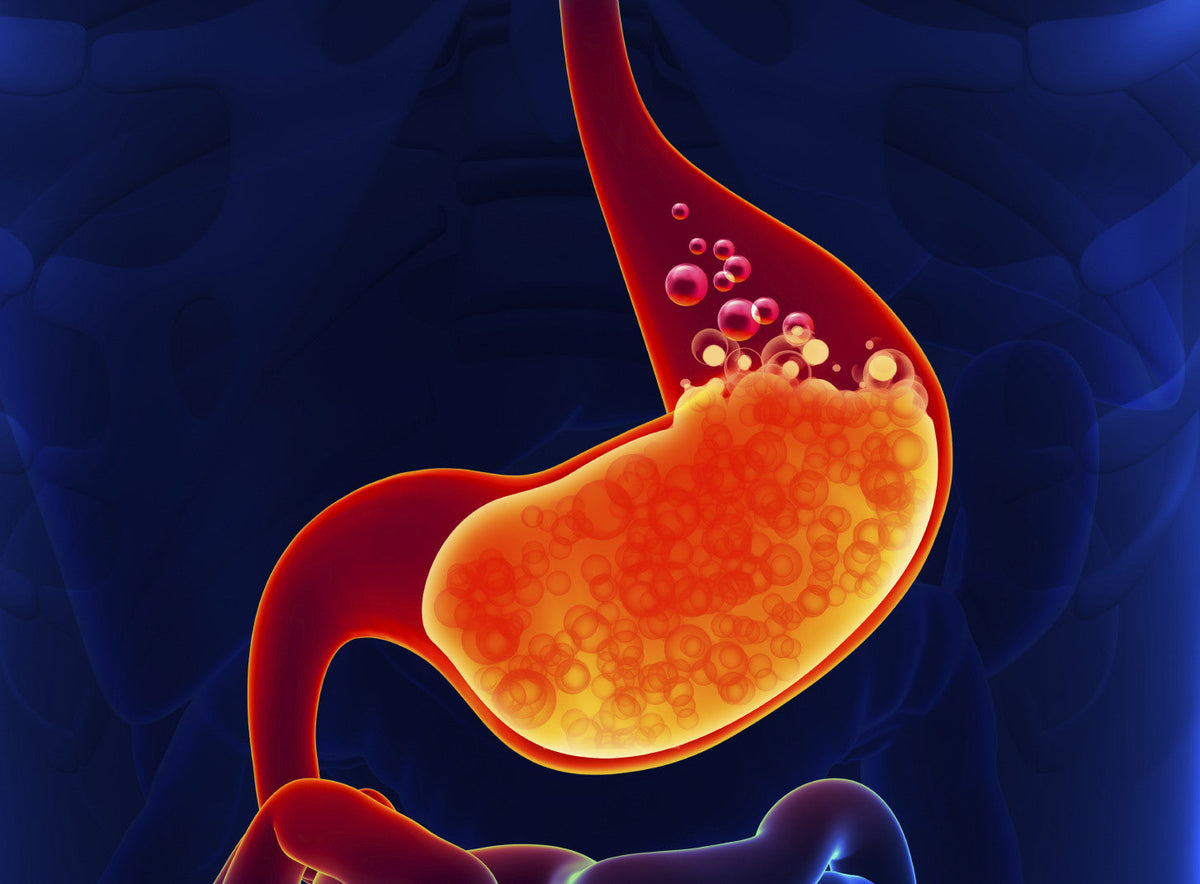
How Sleep Rhythms and Daily Diet Choices Affect Heartburn
|
|
Time to read 4 min
|
|
Time to read 4 min
As one of the most common complaints, with at least 25% of adults experiencing it once a month, heartburn could represent major underlying issues and can be extremely discomforting. Instead of dismissing it as a minor inconvenience, learning the biological basis of this symptom can be useful in understanding the effects of your sleep schedule, diet, and even the surrounding environment. In this post, we’ll explore the most common and scientifically grounded causes of heartburn, sharing with you some proven techniques to prevent recurrence.
Heartburn refers to a flaring and burning sensation, most commonly felt behind the breastbone. It is the result of a relaxed lower esophageal sphincter (LES) valve, located at the bottom of your esophagus, which can bring stomach acid trickling back up. Usually occurring as a symptom of acid reflux, or GERD (Gastroesophageal Reflux Disease), if more frequent, heartburns are most frequently reported in individuals after waking up or just before going to bed.
Some common signs of a heartburn include:
Most of the time, it’s completely harmless; however, repeated instances of heartburn could signal a major issue needing medical attention. Moreover, they usually last from anywhere between a few minutes to whole hours.
Fortunately, we’ve gathered the top causes and fixes for you to get rid of the burn.
Let’s dive in.
A hamburger might seem innocent to munch on every now and then - or does it? Several studies have revealed that a diet consistent with regular consumption of foods high in fats and oils correlates with more frequent heartburns. Having a more balanced diet with greens, fruits, and vegetables low in acidity can reduce your stomach acid and strengthen the LES to close the valve, preventing increased risks of acid reflux.
Try This Biohack: Alongside every meal with some lean protein and vegetables, add a dash of some raw ginger!
A common misconception is that indigestion and heartburn are the same thing, but this isn’t the case at all. In fact, heartburn is an aftermath of indigestion, which can arise because of a highly acidic meal or not giving your gastrointestinal (GI) tract some time to break down the food through peristalsis. Not having a healthy eating plan can unsynchronize the hormones necessary to synthesize gastric acid, increasing the acid reflux at inconvenient times (this is why late-night snacks might not be a good idea before bed!).
To prevent an immediate heartburn after a meal, avoid eating too quickly, or too much, and try sitting upright for a few minutes before lying down. Inconsistent eating patterns can confuse your body and lead to digestive problems ( we have a kit for this!).
Ensuring psychological well-being and mental health care can go a long way. Research has shown that elevated levels of cortisol from stress and anxiety can disrupt your GI tract, leading to increased sensitivity to stomach acid, which could accentuate the effects of heartburn. Practising self-care and mindfulness exercises (e.g., meditating and doing yoga) could prevent exacerbating acid reflux and subsequently heartburn.
The risk of acid reflux from smoking calls for one solution: to quit it. Smokers experience significantly more frequent cases of heartburn than non-smokers. This is because the nicotine in tobacco causes the LES muscle to weaken, allowing stomach acid to seep up into the esophageal tract instead of being kept down. Seeking support to overcome smoking urges is vital in such times.
Some OTC medications or prescribed drugs can lead to the LES muscle relaxing, allowing stomach acid to rise up the esophagus and create that stinging heartburn. Alternatively, they could also damage the stomach lining, disorganizing your gut’s processing, or delay the pace at which your stomach empties itself. Here are a few common heartburn instigators:
Important Note: Consult with your healthcare physician if you are experiencing heartburn after taking any medication!
Try Claisen’s specialized heartburn remedies now to find the best medication plan that understands your needs, hassle-free.
Our internal body clock, also called circadian rhythms, guides our daily sleep-wake cycle and functioning. However, it also affects your gut-brain connection and hormone regulation. A lack of adequate sleep can increase stress hormone secretion, causing excess stomach acid to be produced. Instead of eating right before bed, try having dinner at least two hours prior and drink small sips of water for better sleep. This, coupled with sleeping on your left side at a slightly elevated angle, can minimze your heartburn suffering by preventing acid from moving upwards.
Heartburn is acid reflux from a weak LES valve, often after meals or before bed.
Fatty, acidic foods and poor eating habits increase reflux and chest discomfort.
Stress and smoking weaken digestion, raising cortisol and worsening symptoms.
Certain meds and poor sleep cycles trigger or worsen frequent heartburn cases.
Relief includes diet swaps, stress care, OTC meds, and when needed, doctor visits.
This article and its contents have been medically reviewed by Aditya Jain (MD at Harvard Medical School and Op-Ed Fellow at Doximity).

